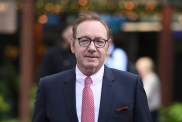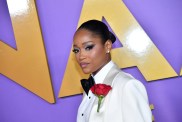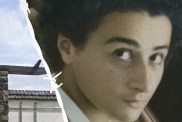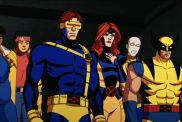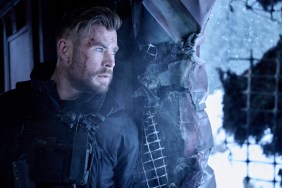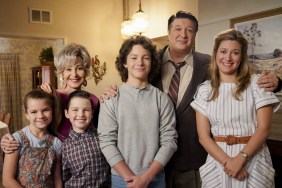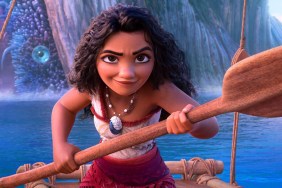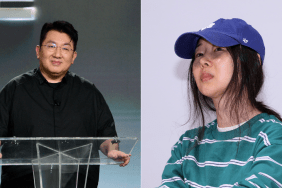
To read reports on The Dark Knight you would think it was written solely by director Christopher Nolan and his brother Jonathan, when in fact David Goyer also played a large role in bringing the second film to the big screen. During the press junket I had the chance to sit down along with some fellow journalists and discuss the process of moving from Batman Begins to The Dark Knight with David Goyer and Jonathan Nolan and some great stuff came out of the interview.
Personally, as you will soon read, Goyer hit the idea of making a great movie based on a comic book right on the head. So often you hear people saying how they made a film for the fans and wanted to stay loyal to the comic books, etc. This is fine, and loyalty to your source material is definitely something important. However, when Goyer says, “We weren’t trying to make a good comic book movie we were trying to make a good movie,” that speaks volumes as to what they set out to do with The Dark Knight compared to other comic book films and even the most recent Indiana Jones for that matter, a film that was sold on the idea that it was “for the fans.”
Goyer follows that up saying, “My hope is that people will come away this summer saying, ‘Wow, that was a great movie.’ Not, ‘that was a great comic book movie.'” Trust me, they achieved their goal, but i don’t want to ruin the entire interview, check it out for yourself below.
Can you talk about Batman and where he’s at at the beginning of the story – why start him off at this point?
David Goyer (DG): At the end of the first movie we’ve got that little grace note between Gordon and Batman where we talk about escalation, and once we started talking about doing another film, it became clear that that was what the theme was going to be. So did we ever actually say how many months or years it is?
Jonathan Nolan (JN): I don’t know
DG: Like six months later, I don’t know
JN: We talked a little bit about Harvey Dent’s election and how that’s taken place
DG: The idea of the second movie, Batman is there, the public knows about him, so then it’s like, where are all the repercussions of that? Good and bad. That was the starting place for the story. How are the villains of Gotham going to react and how are the people going to react? It’s also the idea, which I really liked, of copycat Batmen. It just seemed like a natural thing that would come out of that.
I’m interested in the character that Maggie Gyllenhaal plays. Rachel is such a fully formed character; there’s such dynamism to her and that’s been a trend in movies and I’m wondering what the process was in making her so dynamic
DG: You just want to make her not ‘the girl.’ You want her to have her own agenda and not just be this pawn that all the men are fighting over. We had our work cut out for us because she’s a character that doesn’t exist in the comic books. She’s an amalgam of some characters but she didn’t exist in the comic books. It became apparent when we were talking about the story that we needed a character like that, that Bruce could be reacting off of. I’m glad you liked her.
JN: Me too. When Chris and David came up with the character for the first film, to me it’s a hugely important character, in her own right a fascinating character but then with this question of connecting Bruce Wayne… Bruce Wayne and Batman is sort of teetering on this edge as a vigilante in the public perception and in his own mind of what’s acceptable. What’s too far? What’s not far enough? I think Rachel’s character gives him a moral compass in the first film and that has pretty scary implications in the second film. She really grounds him, and to me that did feel like a marvelous invention on their part because Bruce just couldn’t go off, there was that mystique, she cuts through that, there’s a reality there, a humanity to it which I think is really important
DG: Also, one of the things I really liked, we really wrestled with this in the first film, but she is not unlike a lot of these heroines in these kinds of movies. She did not let him off the hook. She really skewers him but not from a selfish point of view but from you know, she calls him on his crap throughout the movie. She’s a mature adult and I think she recognizes the value to having Batman but as long as that’s in existence there’s no hope of having a real relationship with Bruce Wayne and she gets that. Bruce Wayne, in a kind of immature way, keeps hoping he can have a relationship but I think she’s much more selfless in saying there can be no real hope for us in that regard.
The Joker just is, with no explanations of the way he is. But I saw some of “The Killing Joke” in it with the scars, how he remembers it differently each time…
DG: That’s the key to the character. That’s what was so appealing about him. I think if we had done an origin story for The Joker we would have deflated the character.
JN: To me it’s the most interesting vision of the character, is one who leaves you at the end of the movie with more questions than answers. To me, The Joker, my vision of the character, my understanding of the character from the comic books, the aspect of him that appealed to me most, was the idea of the elemental bad guy. That opening shot of him standing on a corner in my imagination he could have just appeared out of thin air.
The end of the movie certainly leaves it open for more. Have you begun to think about where it would go if there was another one?
JN: Chris likes to work in complete films. He really stays committed and focused on one film at a time, which is not to say that we do. [laughing] I’ve been done for a year or two now so I’ve had plenty of time to think about it.
What goes through your mind?
DG: We’re obviously not going to tell you. We’re not going to give you anything. [smiling] It wasn’t till about three months after Batman Begins came out that Chris called me up and said, “Hey, let’s have lunch,” and I thought maybe he wants to talk about the second one. You never know. It could have just been lunch. That was the first time, three months after. That’s when he wanted to talk about it. Yes, you muse about things, think about things, but we’re not gonna tell you anything.
Does the fact that it is called The Dark Knight rather than Batman Comes Back or whatever, send a message that we are taking this to an even bigger than level? Does the name really trigger something, or is it just something you started with?
DG: I think the point of this movie is now that Batman exists, what effect is he having on the world and how do people perceive him? Good or bad, and how can that perception be manipulated, so yeah it is to the extent that it is inherent in the title.
JN: What I dug about that moniker The Dark Knight is the idea that it has all these ambiguities bound up in it. So almost as much a question as it is the title for a film, and I think the idea of the film is that we are this new status quo, Batman is on the scene now, but how does he earn that moniker? How do we get to a place where you are talking about The Dark Knight? I love the idea that the film sets out with that paradoxical role to fill in society.

Can you talk about the role that politics played in your writing and if it was used as a guide or something that was supposed to be picked up on while watching the film?
JN: To me any kind of overt political reference in a film is going to pull me out of it. I’m going to start thinking about that rather than about the movie. The fact that there were resonances in this film with contemporary situations to me suggests the fact that for seven years the comic book has been interested in really interesting questions. A lot of the stuff that in the film feels contemporary, Batman wrestling with the question of how far is too far in trying to catch someone? They are as old as stone in the books. They have been there since the very beginning. That question of Batman as a vigilante and what’s appropriate, what’s legal, what’s not legal, what does he do? That’s always been to me the driving question of the franchise.
DG: People say, “Oh there are references to 9/11,” and to the extent that we tried to paint a realistic portrayal of Batman, yes we are going to bump up against those, but if The Joker is an anarchist and when the anarchy movement began at the turn of the century they were blowing up bombs all over Europe and employing classic terrorist methods. So, if anything we were drawing from that as opposed to specifically 9/11 or anything like that. Also I think one of the distinctions that needs to be made between what The Joker is doing and the terrorists of today, is that The Joker doesn’t have a cause. He’s not trying to get the people of Gotham to do anything to release someone.
JN: He has no cause and no motivation.
DG: He gets all that money and he burns it.
JN: He burns it. That to me is a pivotal moment in the film, dealing with what I consider a much more frightening villain.
I specifically found it political with the sonar device in comparison to Bush tapping into our phones.
JN: There were a couple of different Batman storylines that dealt with exactly that question, the idea of surveillance, the idea of Batman as a person who would survey even his own friends. This is something that has been in the comic books for a long time.
DG: There was a big story in Justice League where Batman had been surveilling all the fellow Justice League members. That happened six or seven years ago, I can’t remember exactly. That was always embedded in the character.
JN: It was a storyline that we had enjoyed. Honestly, we live in the same world, there are interesting kinds of resonances here and echoes, but it really was about finding the character that emerged from the comic books. And the character Batman has always struggled with questions. He seems to always struggle with these questions that are the most interesting.

David, you have been working on comic related films for a long time, could you talk about your future projects in the context of what working on this brings to those?
DG: I think the most important thing is that what we set out to do with Batman Begins and by extension with The Dark Knight was to…
JN: When I read Batman comic books as a kid I didn’t think it was a comic book. You imagine this is the real world, these are real questions. It’s not limited by that perspective. I think as a comic book fan this is a great time to be watching movies.
DG: My hope is that people will come away this summer saying “Wow, that was a great movie.” Not, “that was a great comic book movie.”
But there is an audience?
DG: Sure, but look I think hubristically, I don’t even know if that’s a word – I think comic book fans will embrace it but I’m hoping that it reaches a little further.
JN: I think to dismiss folks as just comic book fans isn’t necessarily fair either. I grew up reading comic books alongside reading novels alongside watching films. Just a good story, is a good story, is a good story. I think Batman has always had great stories and hopefully we’ve contributed another one.
You can also read our interview with Maggie Gyllenhaal here, with producers Emma Thomas and Charles Roven here and with Christian Bale here.
Also, be sure to stay tuned for Gary Oldman, Aaron Eckhart and Christopher Nolan. We also have a Dark Knight giveaway you can sign up for right here.

